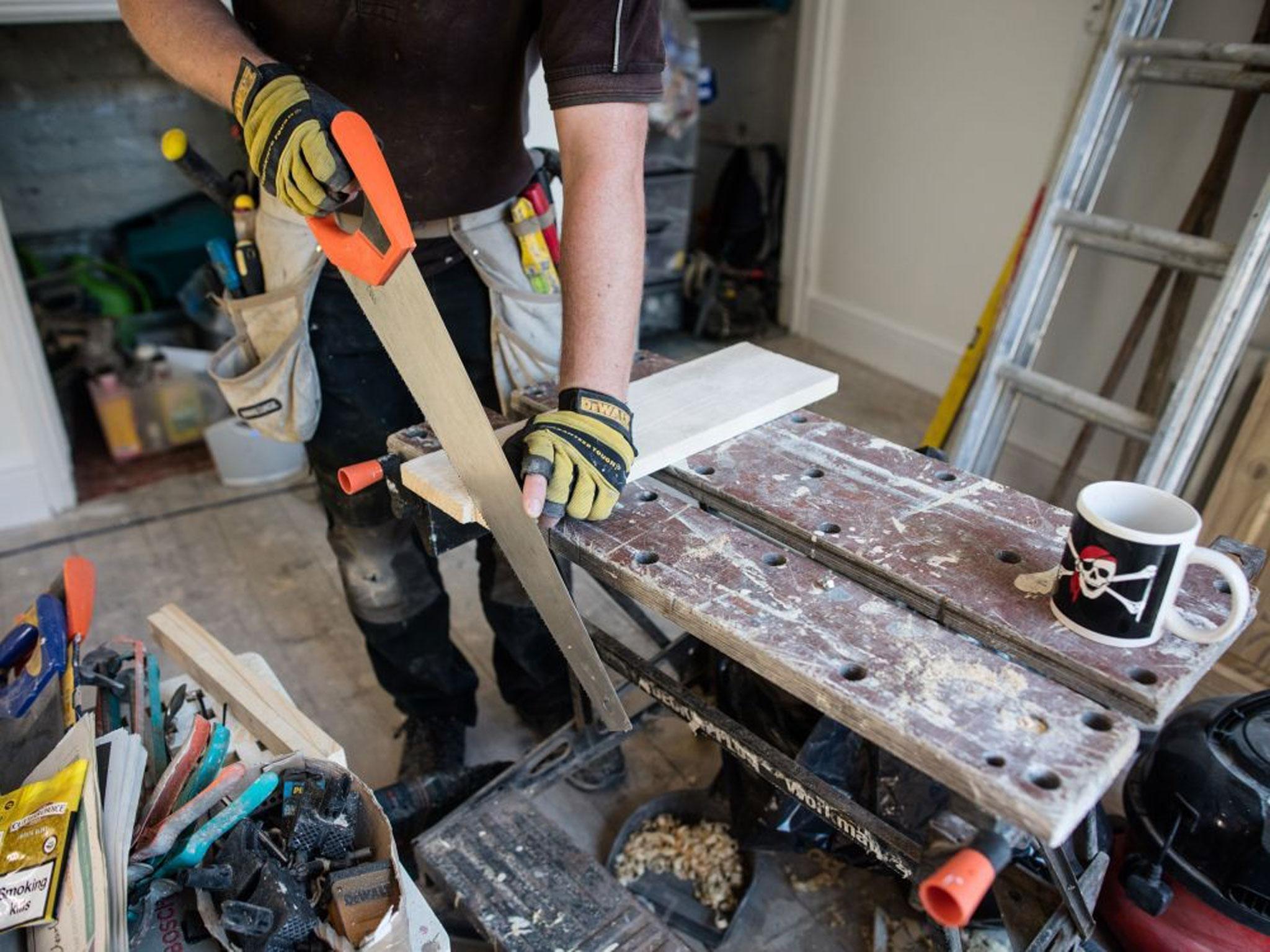Don't buy a shoddy loan to fund your DIY - high-street banks can be expensive
Picking the right finance deal is important for keeping the costs in check, says Andrew Hagger

With the worst of the winter hopefully behind us, it is that time of year when people start to put their DIY plans into action. Few of us have enough cash in the bank to pay outright for the kitchen to be made over or garden landscaped, so picking the right finance deal is important for keeping the costs in check.
There are plenty of options when borrowing the money to fund your home improvements, so do not assume that taking a loan from your own high-street bank is the best way to go.
If you are looking to borrow £7,500 or more then, yes, the banks are keen for your business and are offering some very tempting personal loans at the moment, including Tesco and Clydesdale banks at 3.4 per cent APR – among the cheapest rates ever seen for unsecured borrowing.
However, if you need only £2,000 or £3,000 towards the cost of your home improvements, this is where the banks are much more expensive.
If you want to borrow £3,000, the average personal loan rate is about 16 per cent APR, with some high-street lenders charging as much as 29.9 per cent, so you can see it makes sense to shop around.
The peer-to-peer providers offer some of the most competitive rates for smaller sums, with Lending Works, Zopa and RateSetter all charging 5.3 per cent APR or less for a loan of £3,000 over a three- year term.
If you are comfortable that you can afford to repay what you borrow within the next two years, consider a credit card offering 0 per cent interest on your purchases.
The best-buy interest-free cards from Post Office Money and Sainsbury's bank are worth a look, giving you 27 months and 25 months, respectively, to repay your borrowing without charging a single penny in interest – as long as you make the repayments on time.
If you are not sure that you will be able to clear the debt within that sort of timescale – but still want an affordable option – then source of finance that will not hit your household budget too hard is the MBNA Everyday Plus credit card.
This plastic charges a very competitive rate of interest – just 7.4 per cent APR – but, unlike the vast majority of cards, it allows you to transfer money into your bank account without incurring a fee. That provides you with much more flexibility when it comes to buying goods and paying tradesmen and suppliers.
Another credit card provider offering the "money transfer" facility is Virgin Money, which currently allows you to switch funds from your card to your bank account interest free for 32 months, subject to a one-off transfer fee of 1.69 per cent of the sum transferred.
Just as you spend hours thumbing through brochures and checking out websites to ensure you get that perfect new look for your home, you should be thorough in comparing what is on offer in terms of financial arrangements.
So while you are on the lookout for those new kitchen appliances or getting a quote for a revamp of the bathroom, do not forget to check out the money comparison websites for the latest low-cost credit card and personal loan options.
Taking an expensive loan from your bank will be something you later regret, so don't leave your choice of finance to chance.
Andrew Hagger is an independent personal finance analyst from moneycomms.co.uk
Subscribe to Independent Premium to bookmark this article
Want to bookmark your favourite articles and stories to read or reference later? Start your Independent Premium subscription today.

Join our commenting forum
Join thought-provoking conversations, follow other Independent readers and see their replies